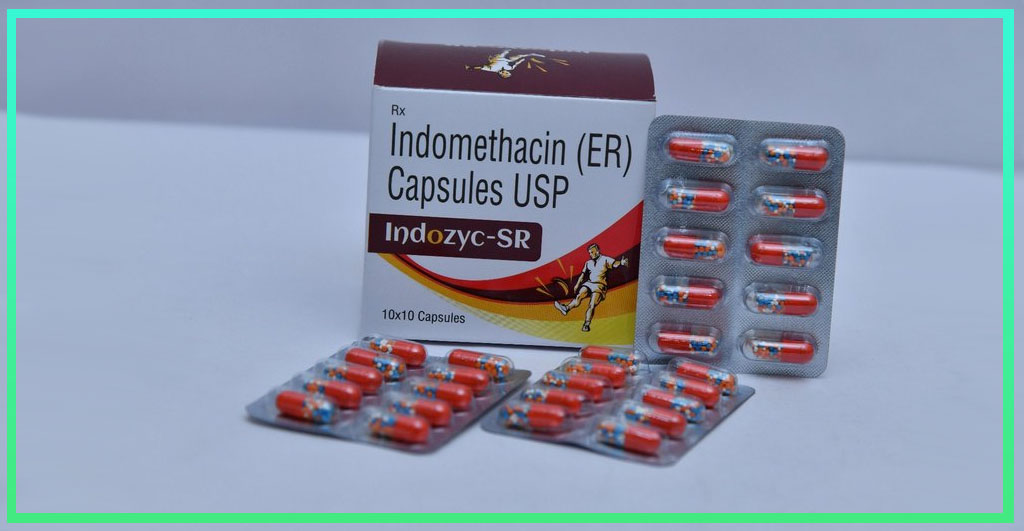Inflammatory pain poses significant challenges for patients, often impairing their quality of life and functionality. Indocin SR, a nonsteroidal anti-inflammatory drug (NSAID), has been a cornerstone in managing such pain effectively. In this article, we’ll delve into the efficacy and safety considerations of using Indocin SR for inflammatory pain management.
Understanding Indocin SR
Indocin SR, or indomethacin sustained-release, belongs to the class of NSAIDs, renowned for their ability to reduce inflammation, pain, and fever. Its sustained-release formulation ensures prolonged drug action, providing consistent pain relief over an extended period.
Mechanism of Action
The efficacy of Indocin SR stems from its mechanism of action, primarily inhibiting the enzyme cyclooxygenase (COX). By doing so, it suppresses the synthesis of prostaglandins, which are key mediators of inflammation, thereby alleviating pain and swelling.
Efficacy in Inflammatory Pain Management
Numerous clinical studies have demonstrated the efficacy of Indocin SR in managing various forms of inflammatory pain, including arthritis, gout, and bursitis. Its potent anti-inflammatory properties make it a preferred choice for conditions characterized by inflammation-induced pain.
Safety Considerations
While effective, Indocin SR is not without its safety considerations. Like other NSAIDs, it can cause gastrointestinal irritation, ulcers, and bleeding, particularly with long-term use or in high doses. Patients with a history of peptic ulcer disease or gastrointestinal bleeding should exercise caution when using Indocin SR.
Dosage and Administration
The dosage of Indocin SR varies depending on the severity of the condition being treated. It is typically administered once or twice daily, with food or milk to minimize gastrointestinal side effects. Dosage adjustments may be necessary in elderly patients or those with renal impairment.
Monitoring and Adverse Effects
Regular monitoring is essential during Indocin SR therapy to detect any adverse effects promptly. Common side effects include nausea, dyspepsia, headache, and dizziness. Serious adverse effects such as renal dysfunction, liver toxicity, and cardiovascular events may occur, necessitating vigilant monitoring.
Drug Interactions
Indocin SR has the potential to interact with various medications, including anticoagulants, corticosteroids, and selective serotonin reuptake inhibitors (SSRIs). These interactions can potentiate the risk of bleeding, gastrointestinal complications, and other adverse effects, highlighting the importance of cautious prescribing.
Special Populations
Certain patient populations require special consideration when prescribing Indocin SR. Pregnant women should avoid its use, especially during the third trimester, due to the risk of premature closure of the ductus arteriosus in the fetus. Additionally, caution is warranted in elderly patients and those with renal or hepatic impairment.
Conclusion
Indocin SR offers effective relief for inflammatory pain, thanks to its potent anti-inflammatory properties. However, its use necessitates careful consideration of safety concerns, dosage adjustments, and monitoring for adverse effects. By understanding its efficacy and safety profile, healthcare providers can optimize its use in managing inflammatory pain and improve patient outcomes.
Table summarizing the information in the article
| Aspect | Details |
|---|---|
| Drug Name | Indocin SR (Indomethacin Sustained-Release) |
| Class | Nonsteroidal Anti-inflammatory Drug (NSAID) |
| Mechanism of Action | Inhibition of cyclooxygenase (COX), suppression of prostaglandin synthesis |
| Efficacy | Demonstrated efficacy in managing inflammatory pain, including arthritis, gout, and bursitis |
| Safety Considerations | Gastrointestinal irritation, ulcers, bleeding; renal dysfunction, liver toxicity, cardiovascular events |
| Dosage and Administration | Varied dosing depending on severity, usually once or twice daily with food or milk |
| Adverse Effects | Nausea, dyspepsia, headache, dizziness; potential for renal dysfunction, liver toxicity, cardiovascular events |
| Drug Interactions | Interacts with anticoagulants, corticosteroids, SSRIs, potentiating risk of bleeding, gastrointestinal complications |
| Special Populations | Avoid in pregnant women (especially third trimester); caution in elderly, renal/hepatic impairment |
| Conclusion | Indocin SR provides effective relief for inflammatory pain; careful consideration of safety concerns and monitoring required |
FAQ
1. Is Indocin SR suitable for all types of inflammatory pain?
Indocin SR has demonstrated efficacy in managing various forms of inflammatory pain, including arthritis, gout, and bursitis. However, its suitability may vary depending on individual patient factors and the underlying condition.
2. What are the common adverse effects of Indocin SR?
Common adverse effects of Indocin SR include nausea, dyspepsia, headache, and dizziness. Serious adverse effects such as renal dysfunction, liver toxicity, and cardiovascular events may also occur, albeit less frequently.
3. How should Indocin SR be administered?
Indocin SR is typically administered once or twice daily, with food or milk to minimize gastrointestinal side effects. The dosage may vary depending on the severity of the condition being treated and individual patient factors.
4. Are there any drug interactions associated with Indocin SR?
Yes, Indocin SR can interact with various medications, including anticoagulants, corticosteroids, and SSRIs. These interactions can potentiate the risk of bleeding, gastrointestinal complications, and other adverse effects.
5. Who should avoid using Indocin SR?
Pregnant women, especially during the third trimester, should avoid using Indocin SR due to the risk of premature closure of the ductus arteriosus in the fetus. Additionally, caution is warranted in elderly patients and those with renal or hepatic impairment.
6. What precautions should be taken when prescribing Indocin SR?
Healthcare providers should carefully assess patients for any contraindications or predisposing factors before prescribing Indocin SR. Regular monitoring for adverse effects and dosage adjustments may be necessary, particularly in vulnerable patient populations.
7. Can Indocin SR be used for long-term pain management?
While Indocin SR can provide effective relief for inflammatory pain, its long-term use should be approached cautiously due to the risk of gastrointestinal irritation, ulcers, and bleeding. Healthcare providers should weigh the benefits against the potential risks when considering long-term therapy.


Leave a Reply